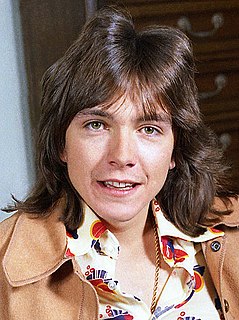A Quote by Richard Edelman
I remember feeling proud as I cast my first vote in Chicago in the 1972 presidential election - President Richard Nixon versus Senator George McGovern. Finally, I could participate. There was so much at stake.
Related Quotes
Ever since Richard Nixon walloped George McGovern in the presidential election of 1972, political pundits have treated as a truism the proposition that liberals are out of step with the rest of the nation, and therefore all but unelectable outside the precincts of the Northeast -- give or take a college town here or a ski resort there. During the course of every presidential election for the past forty years now, Republicans have sought to wield the word liberal as if it were a six-gauge shotgun.
I live in a country where, at least by my sense of arithmetic and justice, Al Gore should have been president, not George W. Bush. To this day, John Kerry probably thinks he won Ohio in 2004 because he had suspicions about the vote in Ohio. And, by the way, Richard Nixon had suspicions in 1960 about the vote in Chicago when he lost to JFK.
After the election of George McGovern in 1972 as a peace candidate - I should say his election to the nomination of the Democratic Party - the party changed the rules to steeply tilt that playing field, creating superdelegates and Super Tuesdays that make it very hard for a grassroots campaign to prevail.
The president, apparently, was so totally unaware of where his foreign policy was that he had to appoint a distinguished commission to help him locate it, and when the commissioners called him in to testify, he told them, essentially, that he couldn't remember what it looked like. Now, if Richard Nixon had claimed something like that you would at least have had the comfort of knowing he was lying. You could trust Nixon that way. But with this president, you have this nagging feeling that he's telling the truth.
A triumph in which Kissinger could claim to have played some little part, in the presidential elections that November, President Richard Nixon had won the second greatest landslide in American history. Forty-seven million Americans had voted for him - and for his and Kissinger's policies - representing more than 60 percent of all the votes cast.
Consider this: The United States held its first presidential election in 1789. It marked the first peaceful transfer of executive power between parties in the fourth presidential election in 1801, and it took another 200 years' worth of presidential elections before the courts had to settle an election.


































